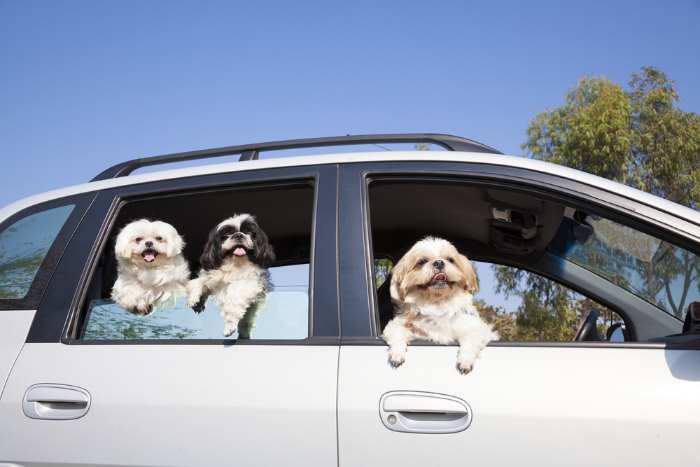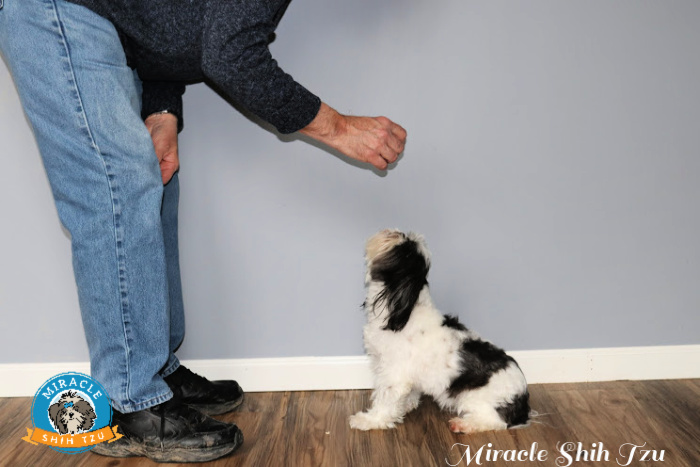- Home
- The Shih Tzu Lifestyle
- Staying in a Pet Friendly Hotel
Tips for Staying in a Pet-Friendly Hotel with Your Dog
Staying in a Pet Friendly Hotel
The holiday season is just around the corner. Many of us will be traveling to spend vacations with family and friends. And for many travelers who love pets, dogs are their families and friends and they can’t think of spending vacation without them.
So, if you are planning to take your dog along and stay in a hotel during your visit then make sure that the hotel you will be staying at is dog-friendly. In this article, you will find out a few tips on finding and staying in a pet-friendly hotel

Planning in Advance for Staying in a Pet Friendly Hotel
If you are going to make a long car journey, you need to plan in advance because it makes things easier for you. Make sure you have a bowl and some water with you and also make many stops on the way (especially during the hot weather). The dog should also have room to stretch their legs and also they need fresh air regularly. If your dog has not traveled before, it is a good idea to start with shorter journeys before traveling the longer ones.
Planning Your Trips Around Your Pet
When you are on holiday, you have to get out and about, so you should make sure the place you plan to visit are dog-friendly. Many of the attractions across the country allow the dog to get in, but you have to use a leash.
There are some pubs that will allow dogs to be given water, but it is still important to find out which ones are going to let you do this. You will know pubs where you can visit with your canine friend.
If you plan on going out without your pet, then find out if it is okay for you to leave them alone on the property as dogs can get anxious. You shouldn’t be gone for too long. The last thing you want is a surprise when you get home. If you want to go out for long, make sure you find a local dog sitter to help. You need to organize that before heading out.
Checking Whether the Hotel is Suitable for Your Pet

One of the things you have to look for when choosing a holiday hotel is whether it is dog-friendly. You also should find out the size of the property and whether it is suitable for your pet. You need enough space for your pet.
You should also check out if there are restrictions, like areas that are off-limits for pets (you shouldn’t be letting your pets ruin cream carpets or trample award-winning flower borders). You should also find out the limit if you have more than one dog.
When your dog first arrives at the hotel room, it can feel unsettled. This is why it is a good idea to take as many of their things as possible. Some familiar items are blankets, beds, and toys. These can make a lot of difference and your dog is going to feel at home.
You should show them new surroundings and give them a chance of exploring if possible so they can feel at home. Make sure you stick to their routine in terms of walk times and food because dogs are creatures of habit.
Do Not Run Out of Supplies
Consider making a checklist of the things you are going to need before you leave your home. This ensures you have enough treats, food, medication, and poo bags. Make sure you also have the dog’s collar or lead. It should have your contact information.
If carrying a lot of stuff isn’t your thing, you should check out whether you can purchase some stuff locally. You should find out the items that the hotel is going to provide.
Getting the Contact Details of a Local Vet
Hope it doesn’t reach a point where you have to contact a vet when you are on a holiday. If things go wrong and your dog falls ill or gets hurt when you are on your holiday. It is good to be prepared. Find more about a couple of local vets close to your hotel and have their contact details with you.
It is also important to take your pet to your vet before you travel so they can get a clean bill of health and any vaccinations and treatments like worming.
Make Sure Your Dog is Well-Trained

Before you take your dog to a hotel, ask yourself how well-behaved they are. If they aren’t that well-behaved, it might be a good idea to spend some time training them before you go on your holiday. You can hire a trainer to do this or do it by yourself.
Your dog needs to obey some basic commands – even if it is just the commands sit and stay.
What Could Possibly Go Wrong?
So, you planned, checked your list again, packed, and worked on training what could possibly go wrong? It’s hard to anticipate the unexpected, but things do happen. Holidays can be magical with your dog, or they can become total nightmares if things go wrong. Think about what could go wrong?
- An unexpected weather event
- Your dog gets sick or freaks out in the hotel
- Your dog refuses to eat or drink
- Your dog accidentally slips out of the collar or harness and runs away
I’m sure you could think of other scenarios that could happen.
It is better to plan for such events when you plan your trip. It’s like planning for an emergency where you must either shelter in place or leave the premises.
A Quick Note from Miracle Shih Tzu

During a cross-country trip with Dana, our black and white Shih Tzu, we thought we had planned well.
- Food, water, and treats
- Extra collar and leash
- Crate with a comfortable bed
- Blanket
- Bowls
- Toys
- Cleaning supplies and extra towels, even dog shampoo if she got dirty
- Even pills to combat car sickness from the vet
Dana was only about 10 months at the time. Though she was fully grown, we did not yet know the extent of her personality because she basically spent most of her time with us at home or walking in nearby parks. She had visited a couple of shops and walked in the city (well, the small downtown portion of our small town). She had numerous car rides, so we thought she was ready for the big adventure.
Even with our best-laid plans, she still got sick, very sick with vomiting and diarrhea, and refused to sleep in the crate we had brought for her. It was a real mess. We soon realized she needed immediate veterinary care as she was also not eating or drinking. Luckily, we were somewhat familiar with the vet we found as we had lived in that city previously. She got treatment and recovered.
But the entire experience left us with the difficult decision to find other arrangements for her if we traveled again. The vet decided it was due to stress. A normally dormant parasite emerged causing the vomiting and diarrhea and worst of all, it was one of those that could also affect us.
The hotel room was a mess, and we couldn’t risk taking her to see old friends. Our visit was cut short, and we returned home with a bill of just shy of $1000 for the vet and about $300 for destruction to hotel property (soiled rugs and bedding). Since then, she has happily stayed home when we travel and at the age of almost 10 is doing fine, even though she now only has one eye.
What I personally learned from this experience is that dogs that are well trained and well-behaved at home may not always respond similarly when in unfamiliar surroundings. Dana is fine now, but after her trip refused to accompany us to farmer’s markets, or outdoor events such as is common in our hometown during the warmer months. Did the trip traumatize her for life? I will never know. Nevertheless, since then, we have always traveled with older, more established dogs.
"Hi, I'm Janice Jones, a former veterinary technician and Shih Tzu expert with over 40 years of experience with the breed. Through Miracle Shih Tzu, I combine my medical background and extensive breed knowledge to provide reliable, practical advice for Shih Tzu owners. My mission is to help you give your Shih Tzu the happiest, healthiest life possible through evidence-based information and real-world solutions. Whether you're new to the breed or a seasoned owner, you'll find trusted guidance here for all aspects of Shih Tzu care.
I hold an undergraduate degree in Psychology with a minor in biology, Early Childhood Education, and Nursing, and a Master's in Mental Health Counseling.



